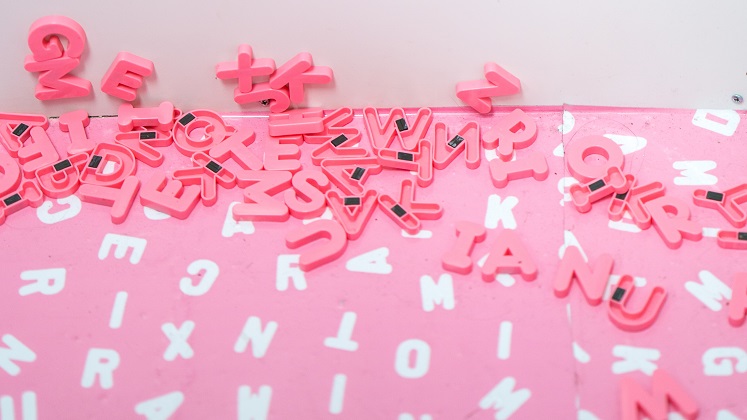Eli Reinisch (BSc Psychological and Behavioural Science) explores how memories are often falsely perceived, from the stories our parents share from our childhood, accounts that witnesses give in court, to the photos we display on Instagram. Do we need to be more mindful of the way we remember?
In times like these, and during a national lockdown, it is easy to reminisce about the “good old days”. What do you miss most? Crazy birthday parties, wild concerts, or vacations with loved ones? As lovely as those nostalgic memories may seem, and how lovely the photos on Instagram portray them to be, chances are that the way you remember them is not the way they really happened.
Can we rely on our memories?
Much like the way our brains are continually forming new connections, our memory is always changing. It is non-reliable. Numerous studies have shown the mind’s susceptibility to generate false memories. This has ranged from participants recalling the wrong details of an event, to remembering entirely non-existent incidents.
So, how can we become more mindful when recalling events of the past?
One aspect of our lives where being conscious of false memories could be especially helpful is our self-image. According to Bauer (2013), our life story is based on autobiographical memories, “memories of events and experiences” that define us. So, what if these memories that contribute so significantly to our identity are faulty? (To explore this false memory – identity dilemma further, watch the video below from The Pursuit of Wonder).
Unreliable childhood memories
If someone asked me what my first memory was, I would easily be able to recall a few distinct events. I have vivid memories of me smashing a banana onto our blue glass dining table, spilling juice down the wooden balcony into our neighbour’s flowerpots, and other very detailed accounts of my early childhood experiences. However, researchers established a phenomenon called childhood amnesia, namely infants under about three years not being able to develop autobiographical memories that last into adulthood (Bauer, 2013). How was it possible for me to still have such detailed, early memories?
The influence of parental style
Research demonstrates the effect of parental styles on children’s memories. Wang (1998) showed that being an only-child results in more specific memories and, according to Jack (2009), children of parents with more elaborative reminiscing styles report earlier recalls. This could link to false memory, suggesting that the more central you are to your parents and the more detail they use when describing their memories, the greater the impact on how clearly you recall your first memories.
Rosy retrospection
This raises the question of how much of our identity is based on events that actually happened. What if the stories our parents told us are flawed due to their own unreliable memory or that they were just made up? One concept in support of that question is the fading affect or “rosy retrospection”. In their 2009 study, Walker and colleagues explained how negative associations of autobiographical memories would fade away faster than positive ones. For instance, right now many of us are longing for our pre-pandemic lives, yet we may be forgetting about many of the negative experiences we faced. Similarly, it is possible that our identity is, to a certain extent, incomplete or flawed. If our parents unintentionally told us stories of only the good things or exaggerated the truth, this is entirely possible.
Media and the formation of false recalls
In their 2002 study, Braun and colleagues found that advertisements that link to nostalgic, autobiographical memories, such as meeting Mickey Mouse while at Disney Land, can result in the formation of false memories. For example, after seeing ads, some of the participants were confident they had met Bugs Bunny at Disney, although he is a Warner Bros. character (Braun, 2002).
But it’s not only our childhood memories whose validity we need to be cautious of. There are several studies in the legal field that show that adults’ memories are just as susceptible to fault as children’s, maybe even more. With more than 90% of crimes in the US resolved not via forensic evidence, but with the help of sworn testimony (Horvath & Meesing, 1996, 1998), the validity of eye-witnesses’ memory becomes vital. Notably, Otgaar and colleagues (2018) argue that, “children’s lack of knowledge can protect them from external suggestions”, meaning their absence of prejudice or life experience, in general, might shelter them more. Consequently, this makes them better eyewitnesses because their memories are less likely to be altered in hindsight by, for example, misleadingly formulated questions.
Selective (social media) memory
It’s not new that social media represents a warped representation of reality in terms of how our lives really are. We also know that, as adults, we are significantly susceptible to false memory. The digital possibility of capturing every moment of our life results in a necessity to curate our self-depiction on social media. Are we once again only seeing, and then remembering, more of the “rosier” side of our past?
Recent studies investigate this question with the help of the retrieval-induced forgetting paradigm (Anderson, 1994), which suggests that “selectively retrieving memories can lead to induced forgetting of related but not retrieved memories”. When it comes to social media, one might argue that posting a photo of a museum you visited on your daytrip to Barcelona might make you more likely to forget the other details of your day in the city, and even recall those details less well than unretrieved, non-posted experiences, like your visit to Madrid the next day. In other words, since we are more likely to remember the things we post about, and we are more likely to post photos of positive experiences, we really might self-inducing ourselves with false, unrealistic memories (Cardinale, 2020).
The next time you scroll through your Instagram feed, be cautious of which memories really are your own and, if they are, whether they were just as rosy as they seem to be. Future research, including my own, could do more to explore the effects of platforms such as Instagram on our memory.
Notes:
- The views expressed are of the authors and not the London School of Economics and Political Science (LSE).
- This blog post was originally written as part of PB101: Foundations of Psychological Science, a compulsory course on the BSc Psychological and Behavioural Science programme in the Department of Psychological and Behavioural Science at LSE. It has been published with the permission of the author. Visit the PBS website for more information on studying in the department: https://www.lse.ac.uk/PBS/Study.
- Featured image courtesy of Travel Sourced on Unsplash
Works cited:
Anderson, M. C., Bjork, R. A., & Bjork, E. L. (1994). Remembering can cause forgetting: retrieval dynamics in long-term memory. Journal of Experimental Psychology: Learning, Memory, and Cognition, 20(5), 1063-1087. Retrieved from https://psycnet.apa.org/doiLanding?doi=10.1037%2F0278-7393.20.5.1063.
Bauer, P. J. (2013). Remembering the times of our lives : memory in infancy and beyond. New York: Psychology Press. Retrieved from https://books.google.co.uk/books?hl=en&lr=&id=pqCYAgAAQBAJ&oi=fnd&pg=PP1&ots=LuUZ2aLAy4&sig=eHLGNo3DWBQQtyxPSdpFojPbgZo&redir_esc=y#v=onepage&q&f=false.
Braun, K. A., Ellis, R., & Loftus, E. F. (2002). Make my memory: How advertising can change our memories of the past. Psychology and Marketing, 1-23. Retrieved from https://onlinelibrary.wiley.com/doi/abs/10.1002/mar.1000.
Cardinale, C. L. (2020). The Mnemonic Consequences of Posting “Self” and “Other” Photos on Social Media. Retrieved from https://academicworks.cuny.edu/cgi/viewcontent.cgi?article=1180&context=jj_etds.
Horvath, F., & Meesig, R. (1996). The criminal investigation process and the role of forensic evidence: A rewview of empirical findings. Journal of Forensic Science, 963-969. Retrieved from https://www.astm.org/DIGITAL_LIBRARY/JOURNALS/FORENSIC/PAGES/JFS14032J.htm.
Horvath, F., & Meesig, R. (1998). A content analysis of textbooks on criminal investigation: An evaluative comparison to empirical research findings of the investigative process and the role of forensic evidence. Journal of Forensic Science, 43(1), 133-140. Retrieved from https://www.astm.org/DIGITAL_LIBRARY/JOURNALS/FORENSIC/PAGES/JFS16217J.htm.
Jack, F., MacDonald, S., Reese, E., & Hayne, H. (2009). Maternal Reminiscing Style During Early Childhood Predicts the Age of Adolescents Earliest Memories. Child Development, 80(2), 496-505. Retrieved from https://www.jstor.org/stable/29738629.
Otgar, et al. (2018). Who Is the Better Eyewitness? Sometimes Adults but at Other Times Children. Current Directions in Psychological Science, 378-385. Retrieved from https://journals.sagepub.com/doi/pdf/10.1177/0963721418770998.
Walker, R. W., & Skowronski, J. J. (2009). The Fading affect bias: But what the hell is it for? Applied Cognitive Psychology, 23, 1122–1136 (2009). Retrieved from https://onlinelibrary.wiley.com/doi/epdf/10.1002/acp.1614.
Wang, Q. (1998). Childhood memory and self-description in young Chinese adults: The impact of growing up an only child. Cognition, 69(1), 73-103. Retrieved from https://doi-org.gate3.library.lse.ac.uk/10.1016/S0010-0277(98)00061-4.




